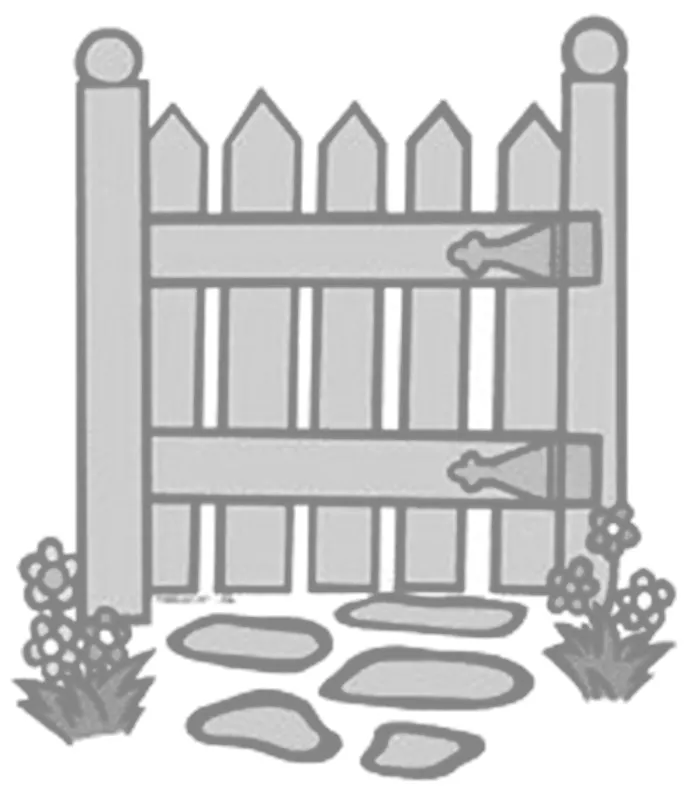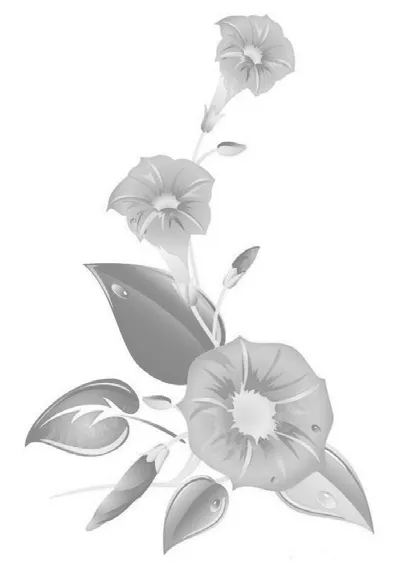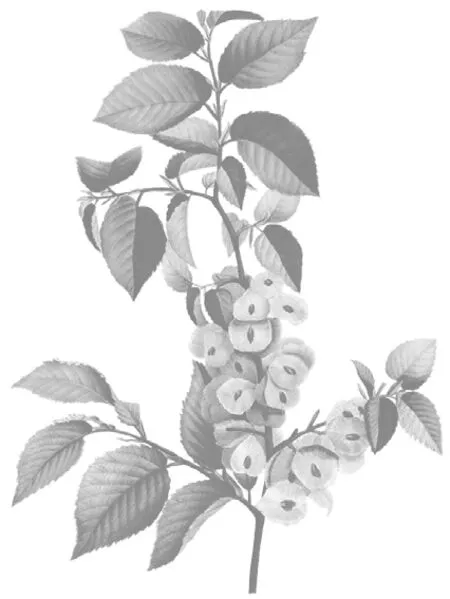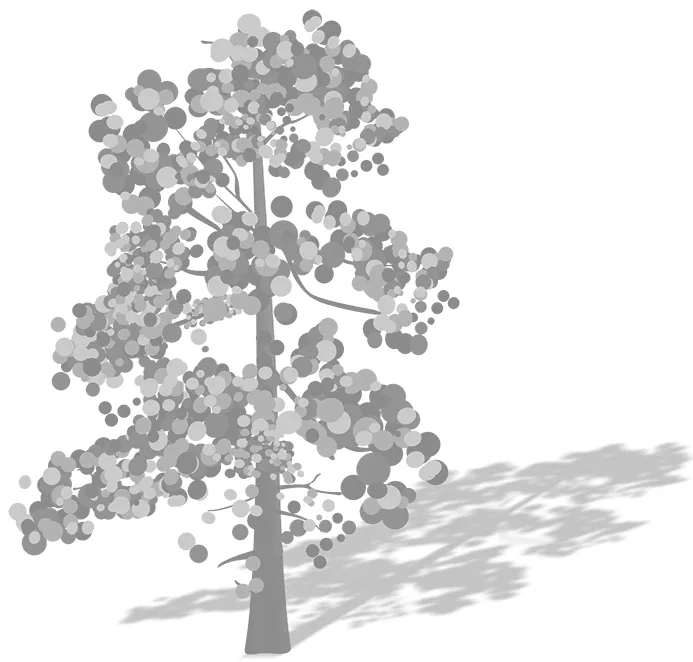我与童年隔片田
文、译/周领顺
七月的一场新冠疫情,忽然把我封闭在生活的小区里,我在疫情每日的播报中更新着希望,在一天天的希望里1“在一天天的希望里”与之前的“希望”构成循环,增强了韵味,但翻译成英语,语义重叠,其意义已经包容在其前的“更新着希望”(hopes got refreshed)里了。,竟然熬2“熬”用live through、go through、get over 等等皆可,但为了表现出“熬”的深意,特意增加agonizing(折磨人的)一词修饰days,也与下段专门讨论的“熬”构成一致,留下预设。走了一个夏季。
2开始的那段时间,说“熬”更加名副其实,生活节奏被打乱,而越是盼望疫情早点结束,就越发焦躁不安。困在小区,却没困在房间,读书半天,总要下楼一趟,也满足身体之所需。
3顺着主要的路道走一走,在戴着口罩的人流里保持着免于感染的距离。因以锻炼为目的,所以步速较快,明知沿途没有可赏之景,也就少了份贪恋和止步的道理。读书,锻炼,封闭的小区,被改变的生活就这么适应了新的节奏,日子就这么打发得慢条斯理。
July witnessed a Covid-19 outbreak and suddenly sealed me off in the apartment complex I lived in. Hopes got refreshed in each day’s news broadcast,while the agonizing days dragged on till the end of summer.
2In the early days of lockdown, “agony” became the best word to describe how the pandemic affected the rhythm of my life. The more I hoped for the lift of restrictions, the more irritated I grew. The apartment complex I lived in was placed under localized quarantine,but residents could move about within the complex. After reading books for half a day, it was necessary for me to go downstairs for a walk, and this was also what my body needed to stay healthy.
3Taking strolls along the main roads among masked-up armies of socially distanced people, I walked at a faster pace,as exercising was my only aim. Knowing there wasn’t so much to see, I didn’t pause off on the way. With reading, exercising and cramped living quarters, my recently-changed lifestyle had begrudgingly taken to a new rhythm. My days were spent at a slack pace.

4日子久了,已将主要的路道走腻,遂转战于楼房之间,那些人迹罕至3“人迹罕至”不一定是别人也罕至,稍显夸张,翻译时还原为“我”的行为。的空白,也就渐渐地有了人气。转弯渐多,但步速不减。不过,楼房之间苗圃里的一草一木,时不时会荡起童年的想往,每每看到久违的植物,就忍不住驻足端详。
5苗圃里较大的树种如松树、香樟,遮荫蔽日;行道树如国槐、铁树,婀娜多姿。偶尔也能看到棵枣树、柿树、枇杷之类,大概出自居民之手,毕竟能看又能食。此时,半红半绿的枣子已经挂满枝条,柿子青涩,而枇杷仅将鹅黄缀4“缀”呈现的是静态的画面,而splash(溅)动态感更明显,在能找到动态感用词的情况下以动态感用词为上,以达到类似“红杏枝头春意闹”中“闹”的效果。满春季。偶尔一小片辣椒、薄荷之类,郁郁葱葱,让生活多了一点一串的喜气。有些肯定是野生的,像桑树、榆树、楝树之流,极易成活,从墙缝和水泥地缝里钻出来,自然有余。人工雕饰的树丛,横成行,竖成线,一眼望穿,缺少神秘感;无人打理的苗圃,满目荒芜,反尔让自然复归了自然,让童年薅草时的发现乐趣再现眼前。
4As days went by, I got bored with walking along the main roads, so I turned to walk among buildings and tried to discover sceneries I had somehow missed before. These twisting and turning lanes weren’t slowing me down. However,every tree, and every blade of grass in these gardens, evoked childhood longings. When I saw plants I had not seen for a long time, I could not tear myself away from studying them for a while.
5Bigger trees like shady pines and camphors were planted in the gardens,while pagoda and sago palms stood charmingly along the roadsides. There was an occasional jujube tree, persimmon or loquat tree, which must have been planted by the residents. These trees looked attractive and their fruits were edible. At the moment, the jujube tree branches were sagging with red and green dates. The persimmons were still green and unripe, and the loquats would wait for the spring before splashing their bright orange. Here and there were small patches of lush green land grown with hot pepper and peppermint plants,making life a bit more delightful. It was certain that the wildly grown mulberry trees, paper mulberry trees, Chinaberry trees and some others, blessed with great vitality, squeezed naturally through cracks in the wall and the concrete floor. Some trees were planted purposely in horizontal and vertical lines, looking plain and predictable.Some gardens looked gorgeously unattended. It was nature tending nature,bringing back fond memories of pulling up weeds when I was a little child.

6探着路,朝里面走一走,真的有不少“旧友”,似乎从故乡一路追着我来到了扬州。有一种小花,牵牛花的模样,田间庭院,不乏相见。白天散步,没人留意,因为花朵合拢,香气锁闭。可一到傍晚,花朵忽然间迎来盛世,成簇怒放。一棵之上,有的纯紫,有的淡黄,有的半紫半黄,香气十分浓郁,即故乡称作“烧汤花”的便是。河南农村把做晚饭叫“烧汤”,“烧汤花”显然是在准备晚饭时才盛开的花,与吴语的“晚饭花”同属一物,奇异的开放时间成就了它的典型特征,朴素由之,乡土气息由之。出于对旧友真容的好奇,我拿出手机,扫出个“紫茉莉”,好雅致的名字。即使花呈淡黄或杂色,也仍然称“紫”,雅致却不精致,倒不如按开放时间相称来得真实。
6Exploring further around the garden, I found quite a few “old friends”,as if they had followed me from my hometown all the way to Yangzhou.One of them was a kind of tiny flower.It is in the shape of morning glory flowers, usually decorating courtyards and fields. In the sunshine, their petals are folded and their fragrance hidden, so they are often ignored by passers-by in the daytime. But by evening, the flowers are at their prime time and will bloom in clusters. On each plant, some flowers are pure purple, some are pure light yellow, and some are half purple and half yellow; and the air is diffused with their rich fragrance. This sort of flower is called “soup-time flower” by my fellow countrymen in Henan. In the countryside of Henan, “soup-time” refers to supper time, so “soup-time flower”, literally a kind of flower that blooms at supper time, is called “supper-time flower” in the Wu dialect of East China.Typically defined by its extraordinary blooming time, the “supper-time flower” is endowed with rustic charm.Wanting to get better acquainted with my “old friend”, I scanned it with my phone to find out more. The scientific name of the soup-time flower is Mirabilis jalapa, which is elegantly translated as “purple jasmine.” Though the flower can assume a slightly yellow or even variegated color, the word “purple” is used in its Chinese appellation. I think calling it soup-time flower is true to the nature of the flower, even if that’s not scientifically appropriate.

7我喜欢花、草、树等一切植物。当然,也有个偏好。比如对于树,更喜欢能看又能食的树种,倘若在树林里见到一棵结了果子的树,那种惊喜绝不止于发现。能看又能食的树种一般是果树,但又不限于此,比如能结可食树花的洋槐、柳树和榆树,甚至还有既不结可食之果也不结可食之花之树,如唯叶而食的香椿,故乡称为“香椿菜树”。香椿煎鸡蛋是常规的做法,常用的部分主要是春芽,而将老树叶的筋抽掉食用,香味更浓。我在小区的苗圃里发现几棵高大的香椿树,想必是有意为之,但也发现几片灌木丛,野生的成分居多。香椿木被称为红椿木,是树中之王,据传能避邪,盖房时,户主人总要想办法找一节嵌在窗棂上,以避坟地木材之邪。
7 Flowers, grasses, and trees can all bring joy to me but I have to admit to some preferences. As for trees, for instance, I prefer those that are capable of producing edible fruits. Seeing a tree bearing fruits in a forest, one’s delight will be beyond discovery. And the nonfruit-bearing trees, like the acacia with its edible flowers, the willow with palatepleasing catkins and the tasty elm samaras that form on elm trees, all provide delicious morsels fit for any supper. For trees like “the Chinese toon vegetable tree”, as my country folks call it, there are only leaves to be edible. The toon is traditionally fried with eggs but it will be even tastier if you pull out and eat the trunk muscle. I’ve found a few high Chinese toon trees in the garden, which I guess have been planted expressly for cooking purposes, as well as a few largely-uncultivated toon shrubs. The Chinese toon tree wood is called “red toon wood” and is said to be capable of preventing disasters. A knowing house builder will use red toon wood to make window lattices, so as to prevent possible disasters brought about by the wood used in the graveyard.

8荒草田里的发现又何止于此。“老黄狗”(狗尾巴草)满目皆是,串几只蚂蚱,就是一顿野味,惜哉遁迹,令童趣稍减。我的童年是在荒草田里滚大的,几十年的忙碌,早已将童年的生活化作了诗和远方。如今的城市小区,让我与童年隔田相望,不觉返老还童矣。
8There were many more discoveries in the wild patch. “The old yellow dog”(dog-tail grass) grew everywhere. It is often used to string grasshoppers, from which a taste of game can be expected.Grasshoppers are scarcely seen nowadays, so the children today are kind of deprived of some joyful entertainment.My childhood was spent on a pristine meadow, but scores of busy years have made those old days poetically distant.Decades later, the gardens around my apartment in an urban complex brought back my favorite childhood memories.Looking over a wild patch of lawn helped me recover my youthful vigor.

